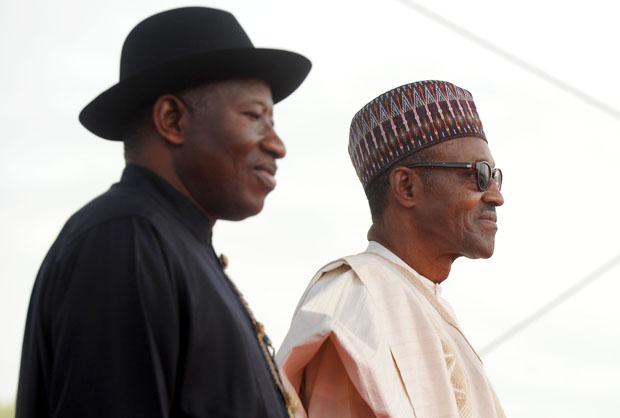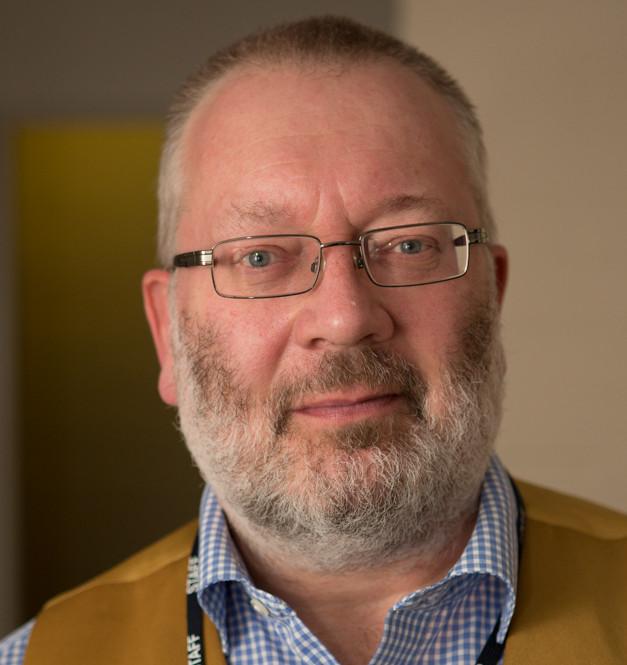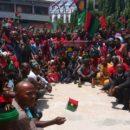What well-trodden routes to power tell us about Nigerian politics

Why does Nigeria elect former military heads of state and ex-governors as president? Will this change?

Former President Goodluck Jonathan (left) with current President Muhammadu Buhari (right). Credit: GCIS.
There is a high chance that Nigeria has seen the last time a former military head of state will return to power via the ballot box. After Olusegun Obasanjo and Muhammad Buhari both achieved this feat, this in itself is a sign that the country’s democracy is maturing at least in some respects.
But what does the fact that former military dictators have won four of the six elections since Nigeria’s return to electoral democracy tell us about the country’s politics? And what might it tell us about the next polls?
In many democracies, the positions that heads of state hold prior to assuming power is often an indicator of what voters look for when choosing their leaders. In the early days of the United States, for instance, the role of chief diplomat was an important stepping stone to the presidency in a country navigating the turbulence of independence and international wars. Five of the first seven successors to George Washington had previously served as Secretary of State, with three ascending directly from that role. More recently, US presidents have tended to be former governors or senators, suggesting that executive experience in state politics is important.
In Japan, by contrast, those in the top job have often taken a slightly different route. Since 1947, nine prime ministers have been former Chief Cabinet Secretaries. This role is responsible for coordinating government bodies and is one that demonstrates competence.
The typical background of Nigeria’s presidential aspirants is a more mixed bag. One trend is of former military leaders being voted in. A major reason behind this could be their name recognition and positive memories from their previous stints. Obasanjo was well regarded for handing power over to a democratic government, while Buhari was remembered for his anti-corruption credentials.
While it is not impossible that retired generals might try to emulate this path, the potential candidates with similar name recognition and experience going forwards are more likely to be politicians. Indeed, the next most common route to running for president in Nigeria is to be a former governor. Nigeria’s other two presidents in the last two decades – Umaru Yar’Adua and Goodluck Jonathan – were both previously state governors, as were almost all leading presidential contenders and their running mates apart from Obasanjo and Buhari.
This can be attributed to three factors. Firstly, state governors have increasingly taken control of party politics. They may oversee party finances and heavily influence the appointment of officials who are therefore likely to support their political aspirations. Secondly, few positions provide more access to government revenue. Governors often manage federal allocations for states and chair party campaign committees. Thirdly, the role both offers a lot of national recognition and exemplifies Nigeria’s “up or out” system. A governor who has stood for the maximum two terms must decide to either make a bid for the presidency (up) or head to the retirement home that is the senate (out).
Admittedly, this analysis only covers four elected presidents. Going forwards, we might see new routes to the presidency emerge. The National Assembly, for instance, is home to several former governors and long-term legislators with strong networks. Being a cabinet minister could turn out to be a promising launching pad for a run at the presidency in the future. And we have already seen one politician, Jonathan, go from the vice-presidency to the presidency, and another, Atiku Abubakar, come close. Future elections might offer more opportunities for deputies to become leaders.
Elsewhere in the world, there are many instances of people taking unconventional routes to become head of state, from the likes of Adama Barrow in The Gambia and Donald Trump in the US to – and to a lesser extent – Barack Obama, Emmanuel Macron and Hakainde Hichilema. This is unlikely to be replicated in Nigeria. In the 2023 elections, candidates may be able to run as independents for the first time, but realistically the only viable candidates will be the flag-bearers of the two major parties: the ruling All Progressives Congress (APC) and the opposition People’s Democratic Party (PDP). In the absence of effective electoral policy, the spending power of these two parties vastly outweighs that of any smaller parties or independents. And, as mentioned earlier, these groups are led by governors and former lawmakers.
Nonetheless, Nigeria’s politics is changing and maturing. A new generation is becoming more active, either in government or in activism, and challenging old norms of what it means to be a public servant. This is also forcing candidates to embrace new ways of engaging with citizens, especially as social media offers people a way to hold leaders to account. While the 2023 elections may still offer voters a narrow and uninspiring set of options, we can at least hope that we are on the path towards a more perfect democracy.






